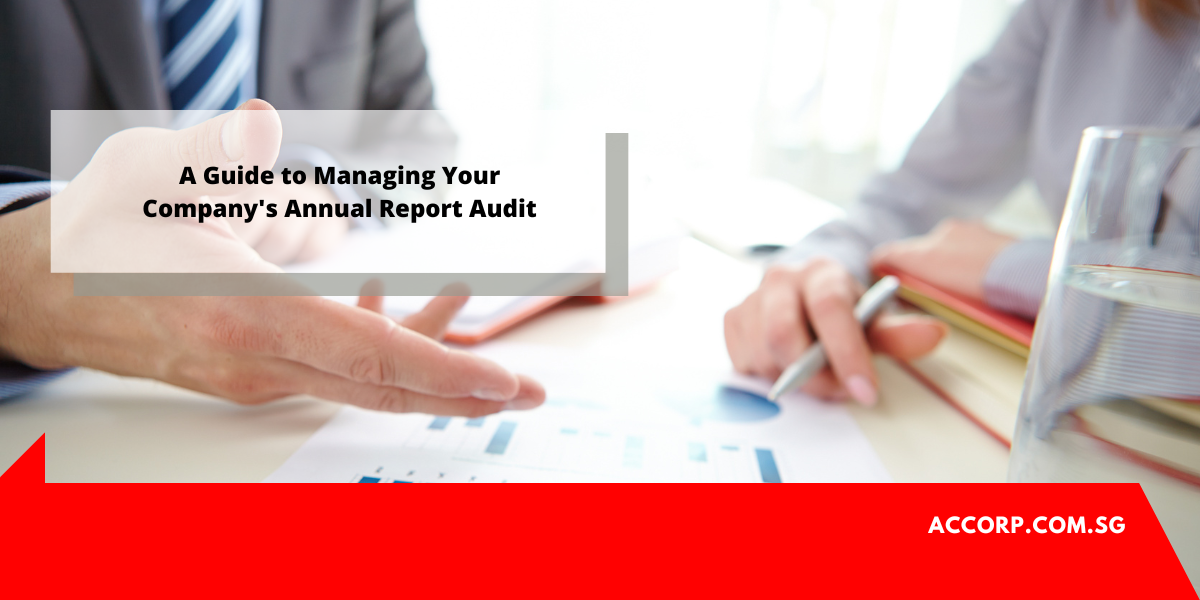As the time for submitting corporate tax returns approaches, it is critical that you have all of your records and financial reports in order. As your team prepares for the final business report, ensure that your financials have been audited.
Here’s everything you need to know about the authority behind the required audit, which organizations are exempt from it, and the best method to get your company’s books ready on time.
The authority in charge of the required audit
Companies in Singapore are required by the Accounting and Corporate Regulatory Authority (ACRA) to employ an auditor within the first three months of its establishment. In most situations, this would be an independent audit company in Singapore that meets the criteria of the Companies Act. However, a 2014 update to the Act established the idea of “small corporations.” Companies that matched the requirements were excused from the required audit.
Annual reports of corporations
All Singapore enterprises must compile their financial accounts in accordance with Singapore’s Financial Reporting Standards. A profit and loss account, a balance sheet, a cash flow report, and a report on major changes in equity should all be included in the financial statements.
Companies must also register their revenues and Estimated Chargeable Income with the Singapore Inland Revenue Authority (IRAS) within three months after the end of their fiscal year. Even if there is no income, they must submit a ‘Nil return.’
Companies in Singapore that provide corporate accounting services have specialised individuals on their staff. They can assist you in preparing more accurate reports and submitting them on time. Outsourcing to an audit firm such as Ackenting Group will assist you in ensuring that your books are up to date and in compliance with ACRA and IRAS. Our experienced team is dedicated to preserving the integrity of your books as well as your reputation as a reliable company with skill, knowledge, and experience in handling difficult accounts.
Companies that are exempt from mandatory auditing
The notion of “small firms,” created by revisions to the Companies Act in 2014, provided exemptions from statutory audit obligations. According to the Companies Act, a firm that meets any two of the following characteristics qualifies as a small company,’ and hence is exempt from the required audit. The requirements are as follows:
- When the entire yearly sales is less than S$10 million
- Where the company’s total assets during the fiscal year do not exceed S$10 million
- Where the total number of full-time workers does not exceed 50 at the end of the fiscal year
These terms also apply to firms that are part of a group or a holding company. In this instance, each subsidiary, as well as the parent holding company, must fulfill the two standards outlined above for small businesses. If you do not fulfill the standards, you may consider having your books audited before submitting.
How to Ensure Accurate and Timely Annual Reports for Your Company
Companies must file their Estimated Chargeable Income (ECI) within three months of their fiscal year end (FYE), as well as their Directors’ Statements and other financial reports, within six months of the FYE, according to IRAS guidelines. These are short deadlines, and failure to meet them may result in fines for your company.
If you routinely submit your business returns late and suffer excessive penalties, you may consider outsourcing to Accorp, a Singapore organisation that provides corporate accounting services. We offer comprehensive one-stop financial solutions for your company, ranging from tax accounting services to accounting services to guarantee that you are completely prepared for future annual reports and audits. We also provide financial records, statements, and risk analysis to help you grow your firm.
For more information about audit firm singapore, please visit https://www.accorp.com.sg/







